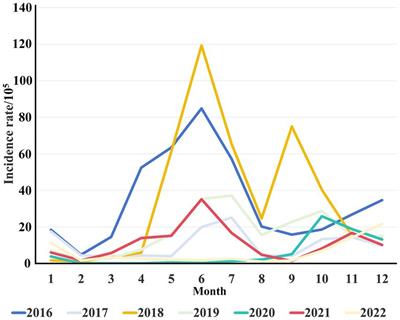EDITORIAL
Published on 13 Dec 2024
Editorial: Unraveling enteroviral pathogenesis: host interactions and antiviral strategies in Asia
doi 10.3389/fviro.2024.1537430
- 200 views
2,207
Total downloads
7,957
Total views and downloads
EDITORIAL
Published on 13 Dec 2024
ORIGINAL RESEARCH
Published on 19 Nov 2024
ORIGINAL RESEARCH
Published on 01 May 2024

ORIGINAL RESEARCH
Published on 26 Jan 2024

ORIGINAL RESEARCH
Published on 11 Jan 2024
